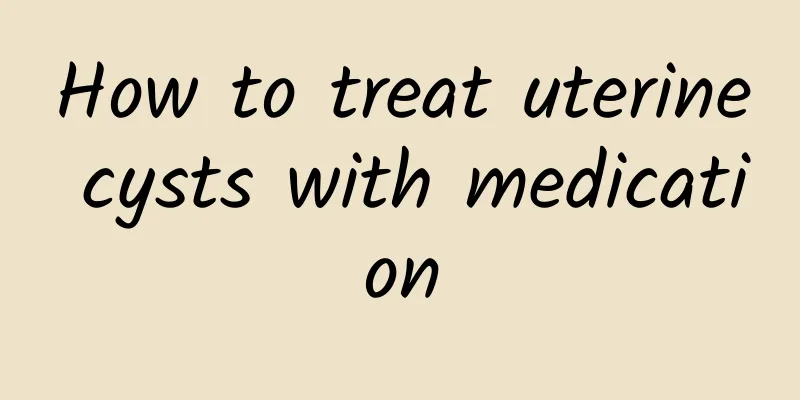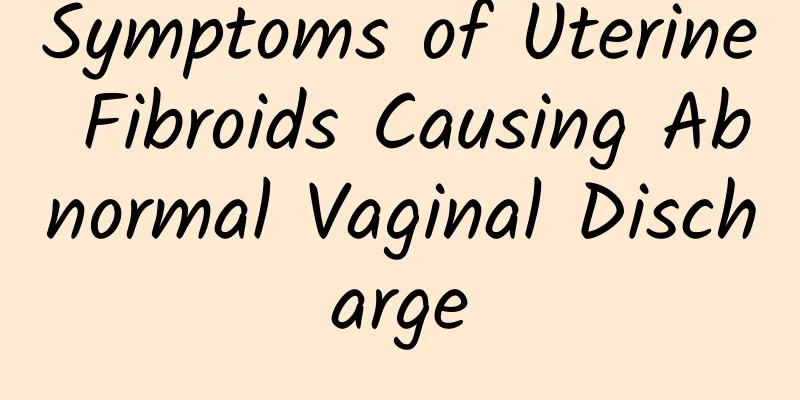How to treat uterine cysts with medication

|
Treatment for uterine cysts depends on the specific situation, and in some cases you may need to see a doctor. Uterine cysts usually refer to endometriosis cysts or other types of cysts, which may be caused by endometriosis, hormone imbalances, or other reasons. Different types of cysts may have different symptoms and effects. For example, some cysts may cause prolonged menstruation, abdominal pain, and even affect pregnancy. For small cysts, your doctor may recommend observation and regular checkups, as many cysts shrink or disappear on their own. In some cases, your doctor may prescribe medications, such as oral contraceptives, to help regulate hormone levels and thus control the growth of the cyst. Surgery, such as laparoscopy, is also an option, especially for larger cysts or those with more noticeable symptoms. It is important to avoid self-medication or ignoring worsening symptoms, and to see a doctor on time. For small cysts, your doctor may recommend observation and regular checkups, as many cysts shrink or disappear on their own. In some cases, your doctor may prescribe medications, such as oral contraceptives, to help regulate hormone levels and thus control the growth of the cyst. Surgery, such as laparoscopy, is also an option, especially for larger cysts or those with more noticeable symptoms. It is important to avoid self-medication or ignoring worsening symptoms, and to see a doctor on time. If you feel uncomfortable or the symptoms worsen, it is recommended that you consult a professional doctor in time. In addition to drug treatment, you should pay attention to your daily life and strengthen your physical fitness. Eat more fiber-rich foods and try to reduce the intake of high-sugar and high-fat foods. Moderate exercise can also help improve body metabolism and help relieve the body's detoxification pressure. It is important to have regular gynecological examinations so that you can keep track of your health status in time and take appropriate preventive and treatment measures. |
<<: Cervical hypertrophy, cervical cyst, pregnancy
>>: Who is prone to Bartholin's gland cyst symptoms and causes
Recommend
Can vulvar leukoplakia be cured?
Can vulvar leukoplakia be cured? 1. Vulvar leukop...
What should women eat to prevent premature ovarian failure?
If women do not take good care of their ovaries, ...
Decoding: Four major causes of vulvar leukoplakia
According to recent survey statistics, the number...
Pay attention to details in life to prevent cervical erosion
Cervical erosion is not a disease, but is mostly ...
Avocados are irresistible! Anti-oxidant, cholesterol-lowering, and can also attract girls and help you find your partner.
If you want to get rid of being single, besides a...
The filling with the highest calories in zongzi is not just pork! This is the oil-absorbing king! Nutritionist teaches 3 tips on fat loss
Subvert your imagination! People are afraid of ge...
Eat to get a sexy waist, 7 "waist-slimming" foods to lose weight easily!
If women have excess fat around their waist, it n...
What medicine is used with Gongyanping to treat uterine fibroids? What anti-inflammatory medicine is used with Gongyanping to treat uterine fibroids?
What medicine is used with Gongyanping to treat u...
What are the early symptoms of miscarriage? If you find any discomfort, you should seek timely treatment.
The early symptoms of miscarriage may include obv...
Three kinds of TCM special treatments for adnexitis
Adnexitis refers to inflammation caused by infect...
Reverse your sweet life! Are you experiencing the five major risk factors for metabolic syndrome? Beware of insulin resistance, a hidden killer
Be careful of metabolic syndrome if you eat and d...
What is the reason for dark red menstruation?
What's the matter with dark red menstruation?...
What are the dangers of long-term amenorrhea?
What are the dangers of long-term amenorrhea? No ...
Research progress on the causes of congenital absence of vagina
Congenital absence of vagina is a female disease ...
Chocolate cysts: a terrifying time bomb
Ovarian chocolate cyst, also known as ovarian end...









